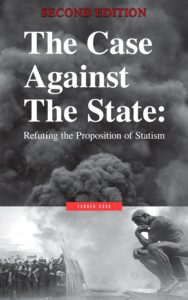PsyOps, short for Psychological Operations, are methods used by governments to influence a population’s attitudes, behaviors, and beliefs. Often, these tactics are employed discreetly, operating under the radar of public consciousness. Shedding light on why the government uses PsyOps to manipulate its people, and how this clandestine form of warfare impacts our daily lives is important in this modern age.
Understanding PsyOps – A Psychological Warfare
PsyOps, or Psychological Operations, are sophisticated strategies that leverage deception, propaganda, and psychological manipulation to modify the perceptions and actions of people, organizations, or entire societies. The primary purpose of these operations is to interrupt an enemy’s ability to think clearly, thus undermining their capacity to fight effectively.
Although typically linked with warfare or international espionage, it’s essential to note that governments have been found to use these tactics on home soil against their own populace. At their core, PsyOps are meticulously engineered to infiltrate the public psyche subtly, effectively camouflaging the manipulation taking place. They typically use misinformation to create confusion and doubt, then proceed to manipulate these sentiments to sway public opinion in a direction that supports their objectives.
This form of psychological warfare operates on multiple levels, ranging from individual psychological manipulation to mass media indoctrination. It’s an art of deception and persuasion that often goes unnoticed by its targets, proving its potency in achieving its desired outcomes.
Social Control – The Undeniable Motive
The unambiguous incentive for a government’s deployment of PsyOps lies in its desire to control and direct the conduct of its population. Preserving social stability and ensuring the perpetuation of their authority remains at the heart of these strategies.
By shaping people’s emotions, perspectives, and beliefs, they are able to steer the public sentiment in favor of their political aspirations. The modus operandi of these operations is characterized by subtlety, with the aim of altering public perception quietly, without creating any discernible alarm. The primary focus is to guide the populace in the direction that the government desires, all the while maintaining the façade of free will and autonomy.
Fear – A Powerful Tool for Manipulation
The deliberate cultivation of fear is a vital component in the governmental use of PsyOps. It is a manipulative technique designed to invoke a sense of dread and uncertainty within the populace. Such a climate of fear acts as a catalyst to render citizens more open to relinquishing their personal freedoms, in the hope of receiving security and safety in return.
Examples of such scenarios include the threat of terrorism, the advent of a health crisis like a pandemic, or looming economic collapse. By utilizing these situations, governments can amplify the general sense of fear, thereby strengthening their grip over the populace and reinforcing their control.
It is crucial to understand that the orchestration of fear is not about fostering an atmosphere of terror, but rather it is about strategic maneuvering to consolidate power and influence societal behavior. This strategy forms a critical part of the PsyOps toolset, manipulating the emotional responses of individuals and populations to ensure compliance with government directives.
Influence of Media – Dissemination of Information
The role of media in PsyOps cannot be overstated. As the primary vehicle for information distribution, media has an unparalleled capacity to mold public perception and steer narratives. Media channels, with their extensive reach and influence, can subtly broadcast manipulated data, thereby directly influencing the collective consciousness.
In today’s digital era, social media platforms and online networks have become a hotbed for misinformation, giving rise to mainstream rapid dissemination of fake news. This conducive environment accelerates the spread and influence of PsyOps, embedding them deeper into society. These platforms can be exploited to amplify government propaganda, creating a distorted reality that supports their objectives.
What’s more, the constant bombardment of information, both true and false, can leave the public in a state of confusion and vulnerability, making them more susceptible to psychological manipulation. Therefore, it’s crucial to approach media narratives with a healthy degree of skepticism and verify information from multiple, reliable sources. The power of media in PsyOps is undeniable, underscoring the importance of media literacy in the face of such sophisticated manipulation tactics.



Legitimacy – Maintaining Power and Control
PsyOps serve a dual purpose, not only do they manipulate, but they also work to preserve the illusion of legitimacy for those who wield power. The narrative is skillfully controlled so that the government is seen as the only viable guardian and benefactor, thereby legitimizing its hold on power and control.
Through this orchestrated perception, a society is created that can see no other option but to acquiesce to the current power structure, effectively quelling opposition and defiance. While the public is led to believe they are free to voice dissent, the reality is a carefully constructed landscape where any protestations fall on deaf ears or are dismissed as fringe ideologies.
This is not by accident, but rather a key function of PsyOps, to quietly silence dissent while promoting the belief in the inherent validity of those in command. Consequently, this creates a populace that accepts, and even defends, the status quo without question. However, it’s important to remember that these PsyOps driven narratives are meticulously crafted illusions, intended to maintain the status quo and uphold the power structure.
A Call to Awareness – Unmasking the Invisible Control
Awareness is our first line of defense against the silent manipulation of PsyOps. Understanding these tactics and recognizing their presence in our daily lives is crucial. PsyOps can be counteracted with the development of sharp critical thinking skills. Instead of blindly accepting the information that is disseminated, we need to scrutinize the sources, cross-verify the facts, and question the underlying motives. Transparency from the government must be demanded, as it is a critical factor in holding power structures accountable and ensuring our rights and principles remain intact.
PsyOps thrive in an environment of passivity and unchallenged acceptance, so we must actively combat this by fostering a culture of healthy skepticism and informed discourse. By doing so, we can begin to peel back the layers of manipulation and reveal the true face of PsyOps.
It’s only through this individual awakening that we can hope to break free from the invisible chains that seek to control our perceptions and actions. To effectively unmask the control of PsyOps, we must first acknowledge its existence and then actively work to debunk its insidious narratives. Knowledge and vigilance are our greatest weapons in this silent battle against psychological warfare.

















